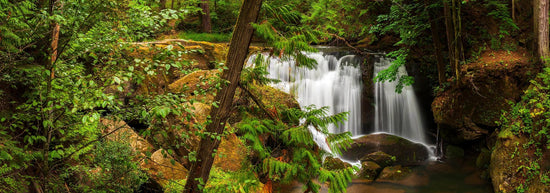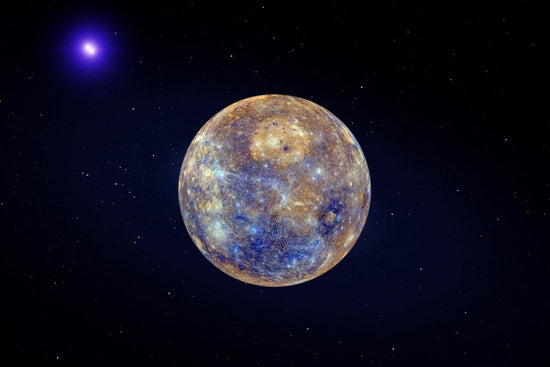During Native American Heritage Month, it’s important to reflect on the fact that the lands and environmental commons that we all rely on to survive have been managed and protected by the people who are indigenous to this land. Against overwhelming odds, indigenous communities are still managing and fighting to protect the environment, employing treaty law and traditional methods to achieve important results. Here are ten reasons to thank indigenous communities during Native American Heritage Month.
1. Restoring Pronghorn - Colville Confederated Tribes

Pronghorn are the fastest animal native to North America, and though native to eastern Washington, were hunted to extinction in the early 1900s. The Colville Confederated Tribes embarked on a program to return the pronghorn to their reservation in 2016, moving adults and juveniles up from Nevada. The pronghorn will provide food for predators, and will reshape the land through their grazing habits in a process known as “rewilding,” returning the area to something closer to its original state.
2. Preventing Approval for Coal Terminal at Cherry Point - Lummi Nation
In the spring of 2016, the proposed international coal export terminal at Cherry Point here in Whatcom County suffered a sound defeat. The coal terminal had a projected export capacity of 48 million tons of coal per year, causing concerns for the local environment as well as for global climate change
Without the intervention of the Lummi Nation, the terminal would likely have been approved. The Lummi Nation leveraged their treaty rights to local fisheries to prevent the approval of the terminal, resulting in the Army Corps of Engineers denying the permit for construction of the terminal. As a direct result, in 2017 the environmental review process was halted and Pacific International Terminals withdrew its applications, signalling the end of the coal export terminal.
3. Adapting to Climate Change - Swinomish
At this point, some degree of continued warming is inevitable, and the goal is to both mitigate and adapt to climate change. Indigenous peoples are taking an active role in helping ecosystems adapt to this reality. One example is the Swinomish tribe. The Swinomish are undertaking several projects to help protect the waters of Western Washington from climate change, from creating the first modern clam gardens to legal actions to halt mining at the headwaters of the Skagit. Other tribes and nations across the US are taking actions to prepare for climate change, employing traditional knowledge and modern technology.
4. Aiding with Orca Conservation - Lummi Nation

The population of southern resident orcas in the Salish Sea have experienced a population crash, with older members of the population starving, miscarriages increasing, and orca calves not living to see adulthood. This is due to collapsing salmon fisheries, pollution in the sea, and heavy ship traffic.
The Lummi Nation, in addition to habitat recovery efforts intended to boost salmon runs, proposed an orca feeding program, up to and including setting up feeding stations for the whales. In addition, the Lummi nation partnered with the Nez Perce and Suquamish to launch the Salish Sea Campaign, aimed at repairing the environment of the Salish Sea and protecting its resident orcas.
5. Fighting for Clean Water - Standing Rock Sioux
So many stunning images remain of the water protectors at Standing Rock battling the Dakota Access Pipeline that it’s difficult to forget. While the most publicized portion of this action occurred back in 2016, it’s vital to recognize that the Standing Rock Sioux continue that work to this day, and in 2020 won a lawsuit, resulting in an order to shut down the Dakota Access Pipeline and empty it of oil by August of 2020. That ruling was overturned, but the Standing Rock Sioux are still working toward shutting the pipeline down for good. While the movement is most often discussed in relation to the Standing Rock Sioux, members of tribes and nations from all over the country participated in the movement.
6. Imparting Forestry Knowledge - Various Tribes

Protection and preservation of forest lands is a vital step in combating climate change. Over 500 indigenous tribes are located on or near national forests in the United States, and since 1969 have taken a cooperative role in management of these forests, from collaborating on monitoring to offering traditional knowledge of forest management and ecosystems to government agencies responsible for managing these vital resources. The work of these many tribes and nations continues today.
7. Advancing Political Involvement - Various Tribes
Political battles in the United States are crucial in the fight against climate change, and though indigenous tribes and nations are often ignored by the political establishment, they’re making a big difference in American politics. In 2018, Sharice Davids of the Ho-Chunk people and Deb Haaland of the Laguna Pueblo became the first indigenous women to be elected to congress. More recently, the indigenous vote was essential in turning Nevada and Arizona blue during the 2020 presidential election.
8. Protecting Environmental Regulations - Makah
In May of 2020, the EPA overturned standards set for water quality in Washington back in 2016. This move will allow industry to release more pollution into state waters, putting salmon, orcas, and people at risk. The Makah tribe, in cooperation with other regional tribes, is leveraging its legal treaty rights to contest this move. This organization filed suit against the EPA in June, seeking to uphold the 2016 decision. Upholding these regulatory standards will benefit everyone living in the region.
9. Restoring Salmon Populations - Lummi Nation
In order to support falling salmon populations in the Nooksack River Basin, the Lummi Nation constructed two salmon hatcheries, the Lummi Bay Hatchery and the Skookum Creek Hatchery. Today, those hatcheries release juvenile salmon and are responsible for a significant amount of the Chinook and Coho salmon in the Puget Sound region.
10. Educating the Public - Various Tribes
Finally and perhaps most importantly, indigenous peoples across the United States have been generous in sharing their traditional knowledge on management of forests, waters, and other environmental commons with settler governments and organizations. Despite experiencing significant political and economic marginalization, they have consistently helped further conservation efforts all over the United States through this sharing of knowledge.
In that vein, a special thank you to James Sambrano, Cora Indian and Chiricahua Apache, indigenous author and activist, who offered guidance in the discussion of these topics.





